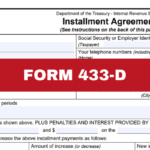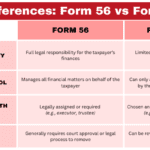This article is part of our series on the 12 Myths About the IRS That Taxpayers Need To Know.
While it is true that the IRS cannot one day put a lock on your residence and sell your house, they can take action to do just that. If a Revenue Officer is convinced that it is in the best interest of the government, he or she will request the Justice Department file a lawsuit in Federal District Court.
A common myth is that the IRS cannot take your house if it is your homestead. While homestead laws do offer some protections, it is important to understand that these protections are not absolute when it comes to federal tax debts.
Firstly, the IRS cannot immediately lock you out of your home and sell it without due process. However, if a Revenue Officer determines that seizing your home is necessary for collecting the tax debt, they can take steps to initiate this process. This begins with the IRS requesting the Justice Department (DOJ) to file a lawsuit in Federal District Court.
If the DOJ agrees to take on the case, they will seek a court order from a Federal Judge to authorize the seizure and sale of your personal residence at auction. Alongside this, the DOJ will secure a judgment to extend the Statute of Limitations on the debt by an additional 20 years, providing the government with an extended period to collect the owed amount.
Fortunately, such drastic actions are relatively rare. The IRS typically only considers home seizure after exhausting all other collection methods. This usually happens in cases where the tax debt is substantial, the 10-year Statute of Limitations is about to expire, and there is significant equity in the property.
While the outright seizure of homes is uncommon, it is very common for the IRS to place a lien on your property. An IRS lien ensures that the government will collect the owed taxes if you decide to sell or refinance your home. This lien remains in place until the debt is fully paid or settled.
In conclusion, although the IRS taking your house is a rare occurrence, it is not impossible. The myth that your primary residence status completely protects your home from the IRS is just that—a myth. The IRS has legal means to enforce tax collection, including property liens and, in extreme cases, seizing and selling homes through a court-ordered process.







 Steven N. Klitzner, P.A. is a tax attorney based in Miami, Florida. He has been practicing tax law for over 40 years, and currently holds a 10.0 rating by Avvo. Mr. Klitzner was appointed to the IRS Service Advisory Council in 2021 and is...
Steven N. Klitzner, P.A. is a tax attorney based in Miami, Florida. He has been practicing tax law for over 40 years, and currently holds a 10.0 rating by Avvo. Mr. Klitzner was appointed to the IRS Service Advisory Council in 2021 and is... 





